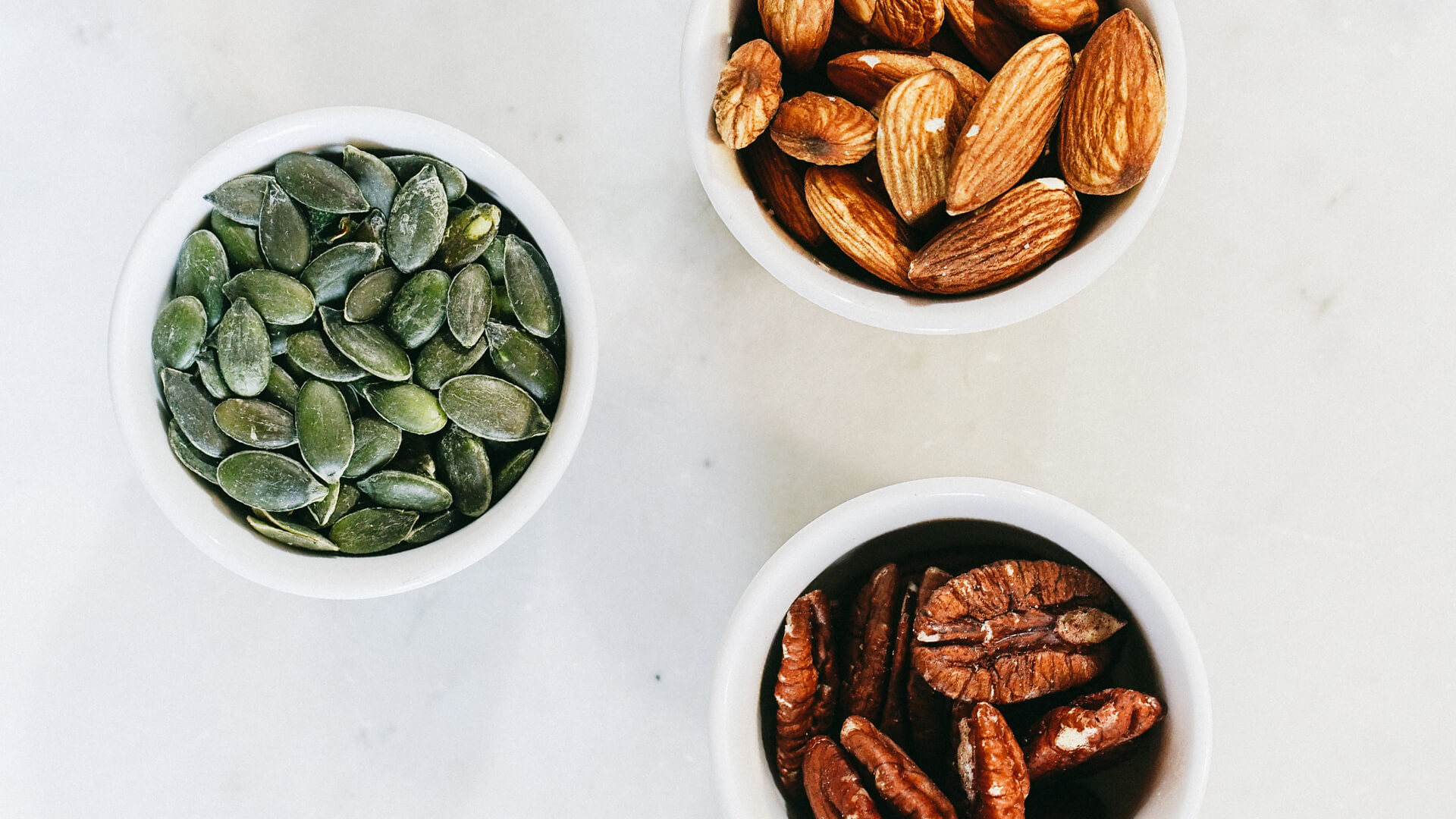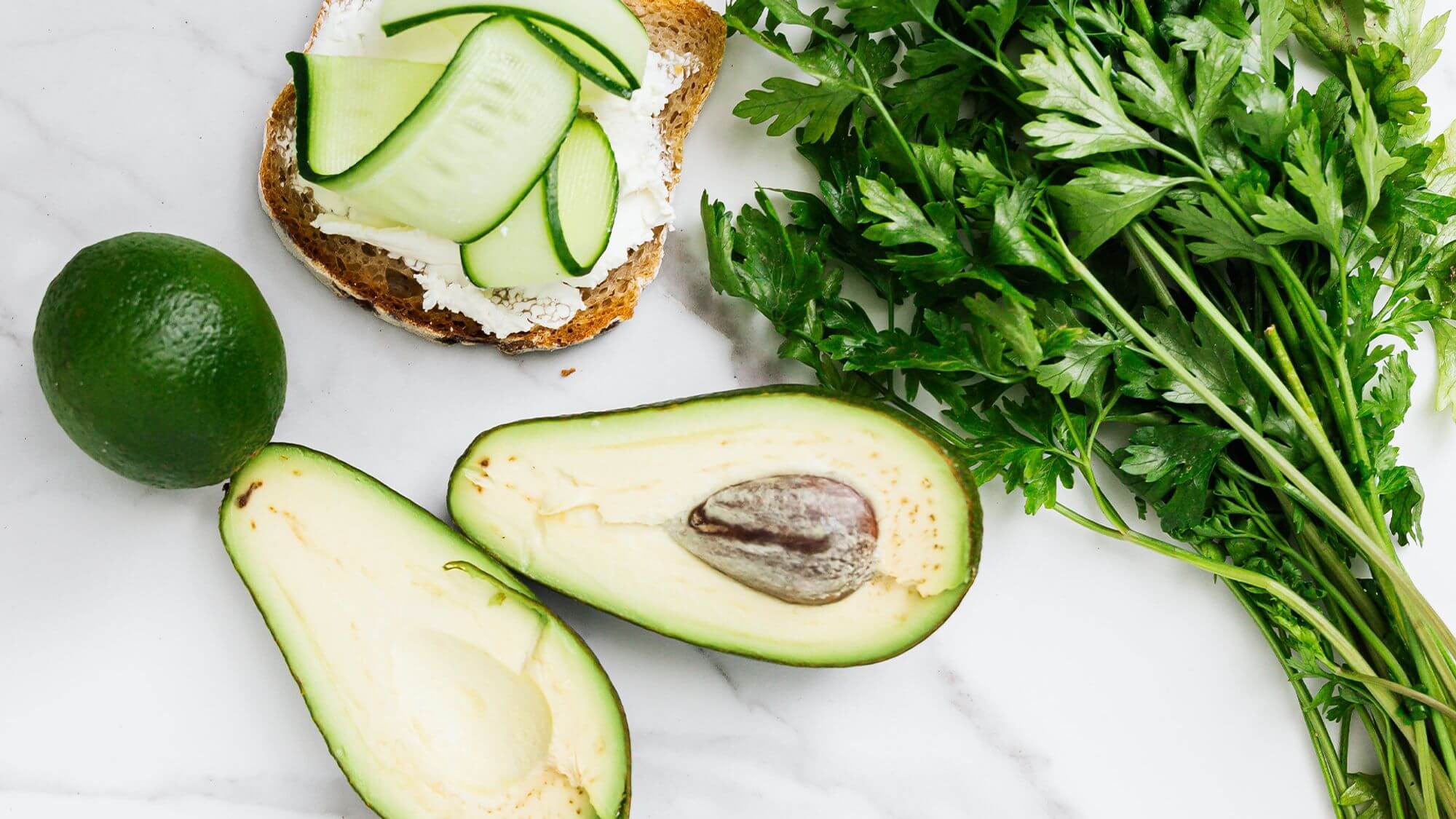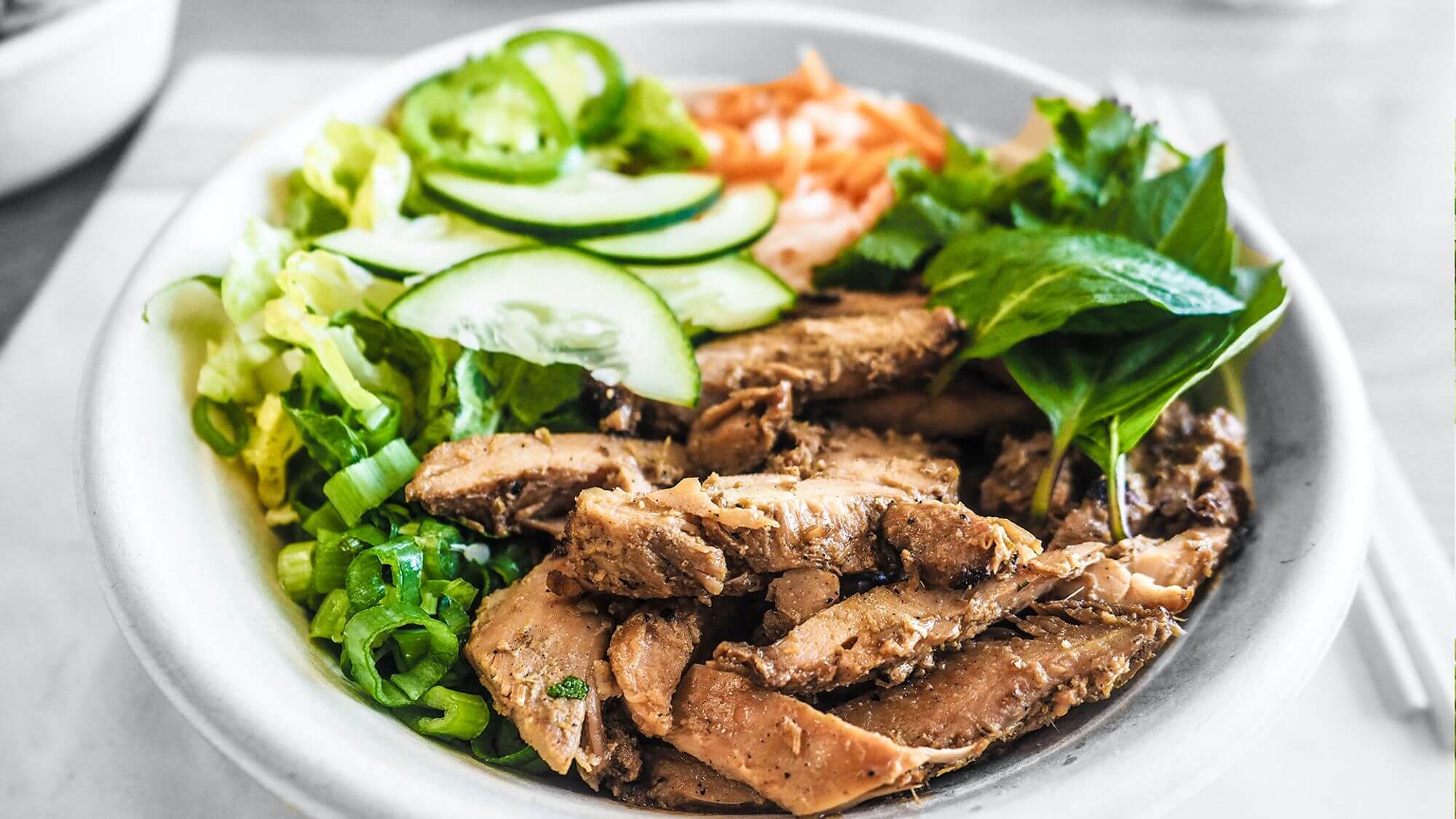Building muscle is as much about lifting weights as what's on your plate. To bulk up effectively, you'll need to eat in a calorie surplus—consuming more calories than your body burns in a day. But figuring out that magic number isn't a one-size-fits-all deal, and you'll need to understand how your metabolism, activity levels and current weight influence your caloric needs.
Interestingly, many people underestimate their daily calorie intake. On average, British men consume over 3,000 calories daily but report eating 2,000, while women claim 1,500 but average closer to 2,500.
Knowing how many calories to eat and how to divide them between protein, carbs and fats can make or break your muscle-building progress. But if you’re not great with numbers, figuring out your daily calorie intake can feel like solving an off-putting math problem from school.
Ready to build more than your bicep? We're cutting through the confusion and breaking it down step by step, showing you exactly how to calculate your calorie needs alongside simple but effective meal plans to help you stay on track.
The basics: What is a calorie surplus for muscle gain?
Key to muscle growth, a calorie surplus means consuming more calories than your body burns in a day, providing the extra energy needed to repair damaged muscle fibres and support recovery to build new, stronger tissue.
A general guideline is to consume an additional 2,500 calories per week to gain one pound of lean muscle mass, with one study suggesting that an extra 44–50 calories per kilogram of body weight daily may be needed to support muscle growth effectively. Without a calorie surplus, your body lacks the necessary resources to create muscle, no matter how hard you hit the gym.
Muscle vs fat: the key difference
While a calorie surplus is critical for muscle gain, the type of weight gained depends on how those extra calories are managed. Muscle is dense and metabolically active, meaning it burns more calories even at rest.
Fat, on the other hand, serves as an energy reserve but doesn’t contribute to strength or performance. To ensure your calorie surplus supports lean muscle growth rather than fat gain, a balanced macronutrient ratio with a strong emphasis on protein is vital.
How to calculate how many calories you should eat in a day to gain muscle
Calculating your daily calorie intake for muscle gain doesn’t have to be overwhelming and scary. Follow these simplified steps to work out how much you need to eat to build muscle effectively while keeping fat gain at bay.
Step 1: Estimate your maintenance calories (TDEE)
Your Total Daily Energy Expenditure (TDEE) is the number of calories your body needs to maintain its current weight, factoring in your activity levels. Here’s a quick way to estimate it:
- - Multiply your weight by 10 (women) or 11 (men) for your baseline.
- - Adjust for activity levels:
- 1. Little to no exercise: Multiply by 1.2
- 2. Light exercise (1–3 days/week): Multiply by 1.375
- 3. Moderate exercise (3–5 days/week): Multiply by 1.55
- 4. Hard exercise (6+ days/week): Multiply by 1.725
- 5. Heavy exercise (training 2x a day): Multiply by 1.9
Example: A 160 lb active male (moderate exercise) would calculate:
- - 160 × 11 = 1,760 (baseline)
- - 1,760 × 1.55 = 2,728 calories/day (TDEE)
Step 2: Add a calorie surplus for muscle gain
To build muscle, you need to be in a calorie surplus to fuel recovery and growth.
- - For lean muscle gain: Add 5–10% surplus (reducing the risk of fat gain).
- - For faster growth: Add 15–20% surplus, but monitor fat gain.
Example: For a TDEE of 2,728 calories, a 15% surplus equals:
- - 2,728 × 0.15 = 409 extra calories
- - Total daily calories = 2,728 + 409 = 3,137 calories per day
Step 3: Calculate your macronutrients
Divide your calories among protein, carbs and fats to optimise muscle growth.
- - Protein: 10–35%
- - Carbs: 45–65%
- - Fats: 20–35%
Step 4: Adjust and track your progres
Your body’s needs will evolve as you gain muscle or adjust your workout intensity. Reassess your needs every 2–4 weeks:
- - If you’re gaining too much fat, reduce your surplus slightly.
- - If gains are slow, increase calories incrementally by 100–200 per day.
Example calorie calculation for muscle gain
Below is a simplified table showing daily calorie needs for muscle gain based on body weight (multiplied by 11 for men based on the info above), moderate to hard activity level and a 15% calorie surplus.
| Weights (Ibs) | Activity Level | TDEE (calories) | Calorie Surplus (15%) | Total Daily Calories for Muscle Gain |
|---|---|---|---|---|
| 150 | Moderate (3-5 days/week) | 2558 | 2941 | 384 |
| 150 | Hard (6+ days/week) | 2846 | 3273 | 427 |
| 180 | Moderate (3-5 days/week) | 3069 | 3529 | 460 |
| 180 | Hard (6+ days/week) | 3416 | 3928 | 512 |
| 200 | Moderate (3-5 days/week) | 3410 | 3922 | 512 |
| 200 | Hard (6+ days/week) | 3795 | 4364 | 569 |
Macronutrient breakdown for muscle building
While calories are essential for muscle growth, macronutrients—protein, carbohydrates and fats—are the components that make it happen. A common macronutrient ratio for muscle building is:
- - Protein: 10–35% of daily calories
- - Carbohydrates: 45–65% of daily calories
- - Fats: 20–35% of daily calories
The role of protein, carbohydrates and fats
- - Protein is the building block of muscle, providing the amino acids needed for repair and growth. Experts recommend 1.2–2.0 grams of protein per kilogram of body weight daily for muscle gain.
- - Carbohydrates fuel workouts and restore glycogen levels, giving your muscles the energy they need to perform during workouts and recover afterwards. Diets with 45–65% of calories from carbs, such as whole grains, fruits and vegetables, provide the energy needed for intense training sessions.
- - At 20–35% of total calories, fats contribute to hormonal health, including testosterone, which is key for muscle growth without compromising muscle gain and helps your body absorb certain vitamins, including vitamins A, D, E and K.
Example meal plans: Calories for muscle gain
A meal plan tailored to muscle gain requires a calorie surplus and a balanced distribution of macronutrients—proteins, carbohydrates and fats.
Meal plan for meat eaters
- - Breakfast: 3 scrambled eggs, 1 sliced avocado, 2 slices of whole-grain toast, 1/2 cup of 2% milk, 1 sliced tomato, 1 tsp coconut oil and salt and pepper for seasoning (Calories: 944, Protein: 37.1g)
- - Morning snack: Greek yoghurt (1 cup) with honey, walnuts and mixed berries (Calories: 446, Protein: 17.6g)
- - Lunch: Grilled chicken breast with skin, quinoa salad with mixed vegetables and steamed broccoli (Calories: 532, Protein: 34.6g)
- - Afternoon snack: Edamame (1 cup) (Calories: 200, Protein: 16g)
- - Dinner: Baked salmon (6 oz), sweet potato, asparagus (Calories: 520, Protein: 39.5g)
- - Evening snack: Cottage cheese (1 cup) with pineapple (Calories: 247, Protein: 23.5g)
Meal plan for vegetarians/vegans
- - Breakfast: Porridge made with soy milk, topped with almonds and blueberries, 1 tablespoon of chia seeds (Calories: 584, Protein: 20.7g)
- - Morning snack: Smoothie with spinach, banana, almond milk and plant-based protein powder (Calories: 252, Protein: 19.6g)
- - Lunch: Lentil and chickpea salad with mixed greens and vinaigrette and whole-grain pita bread (Calories: 582, Protein: 36.8g)
- - Afternoon snack: Hummus (1/2 cup) with carrot sticks and whole-grain crackers (Calories: 339, Protein: 8g)
- - Dinner: Tofu stir-fry with mixed vegetables and brown rice (Calories: 744, Protein: 34.3g)
- - Evening snack: Almond butter (2 tablespoons) on whole-grain toast (Calories: 396, Protein: 14.7g)
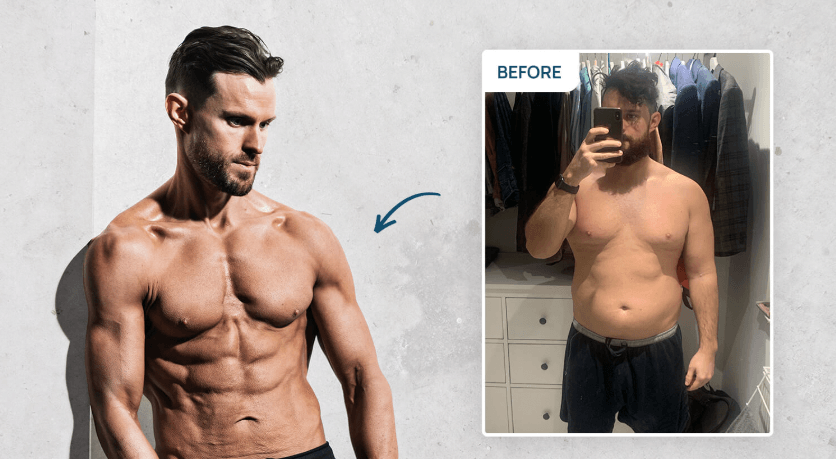
Find out how Mark lost 30kg of fat and replaced it with muscle using Frive’s high-protein meal prep
Tips for tracking calories and staying on track
Use calorie-tracking apps
Apps like MyFitnessPal, Cronometer, and Lose It! simplify calorie counting by offering extensive food databases and tracking your macronutrient ratios. With just a few taps, you can log your meals, snacks and drinks to monitor your daily intake for hidden calories and ensure you're meeting your protein goals.
Keep a food diary
Sometimes, pen and paper can be as effective as an app or phone and writing down everything you eat and drink will give you a clearer picture of your habits. Start with a week or two of consistent logging to understand your typical calorie intake and make it a permanent part of your routine if you find it helpful.
Master meal prep and portion control
Preparing meals in advance is a game-changer for muscle building. By cooking and portioning meals ahead of time, you're less likely to grab unhealthy, calorie-dense options when hunger strikes.
For an even simpler approach, Frive's muscle-building meal plans offer ready-to-eat options tailored to your goals without the hassle of meal prep.
Monitor progress and adjust as needed
Your calorie needs may change as your weight and activity levels shift. Regularly check your progress:
- - Weigh yourself weekly to track muscle gain.
- - Use a tape measure or body composition scales to measure changes in muscle mass and fat percentage.
- - If progress stalls, reassess your calorie intake or macro split and adjust accordingly.
Take the stress out of counting calories with Frive
Frive's ready-to-eat meal plans eliminate the guesswork. Each meal is nutritionally balanced and portioned, so you don't have to spend time weighing, measuring or calculating. Trustpilot users rave about convenience and quality, with one customer sharing:
The meals are delicious and are really filling! It's such an easy way of getting high-protein meals in without having to eat the same old boring food!” Katy L.Stay consistent, but be flexible
Consistency is key, but we get it—life happens. If you have an off day or meal, don't sweat it. The occasional indulgence won't derail your progress as long as you remain consistent overall.
Common mistakes to avoid when trying to gain muscle
Avoiding muscle-building mistakes is just as important as nailing your workouts and meals. Here’s a look at some common slip-ups that could slow your progress (and how to fix them).
Overeating and gaining excess fat
The mistake: Eating far beyond your calorie surplus can lead to fat gain instead of lean muscle.
The fix: Stick to a moderate calorie surplus of 5–10% above your maintenance calories and regularly track your intake with an app like MyFitnessPal, adjusting as needed.
Neglecting protein intake
The mistake: Not consuming enough protein leaves your muscles without the foundation needed for repair and growth.
The fix: Include high-protein foods like chicken, tofu, eggs or Greek yoghurt in every meal. Our meals, such as our Green Thai Chicken Curry or Roasted Turkey Slices, are protein-packed options that make it easy to hit your target.
Failing to adjust calories based on progress
The mistake: Sticking to the same calorie intake, even when progress stalls.
The fix: Monitor your weight, strength, and body composition weekly. If you’re gaining fat too quickly, reduce your calorie intake slightly. If your progress is slow, add more calories gradually.
Doing too much cardio
The mistake: Excessive cardio can slow muscle growth by burning the calories needed for muscle repair. You also risk your body tapping into muscle tissue to use as an energy source during extended cardio sessions.
The fix: Limit cardio to 1-2 low-intensity sessions per week. Focus on strength training as your primary exercise, with cardio as a supplementary extra to maintain cardiovascular health.
Ignoring rest and recovery
The mistake: Overtraining without allowing your muscles time to recover leads to fatigue and limited progress.
The fix: Recovery is when muscles rebuild and grow stronger. Aim for 7–9 hours of quality sleep per night and incorporate rest days into your routine.
Neglecting post-workout nutrition
The mistake: After intense exercise, your body needs to refuel to avoid leaving it feeling fatigued and weak. Skipping a post-workout meal slows down recovery and muscle repair.
The fix: Refuel after exercising with a meal that contains proteins and carbs. A simple option is a Frive meal like their Citrus & Miso Salmon Poke Bowl or a protein smoothie with fruit.
Not hydrating enough
The mistake: Dehydration impairs exercise performance and delays muscle repair and recovery from previous workouts.
The fix: Aim to drink 6 to 8 cups or glasses of fluid daily, including rest days.
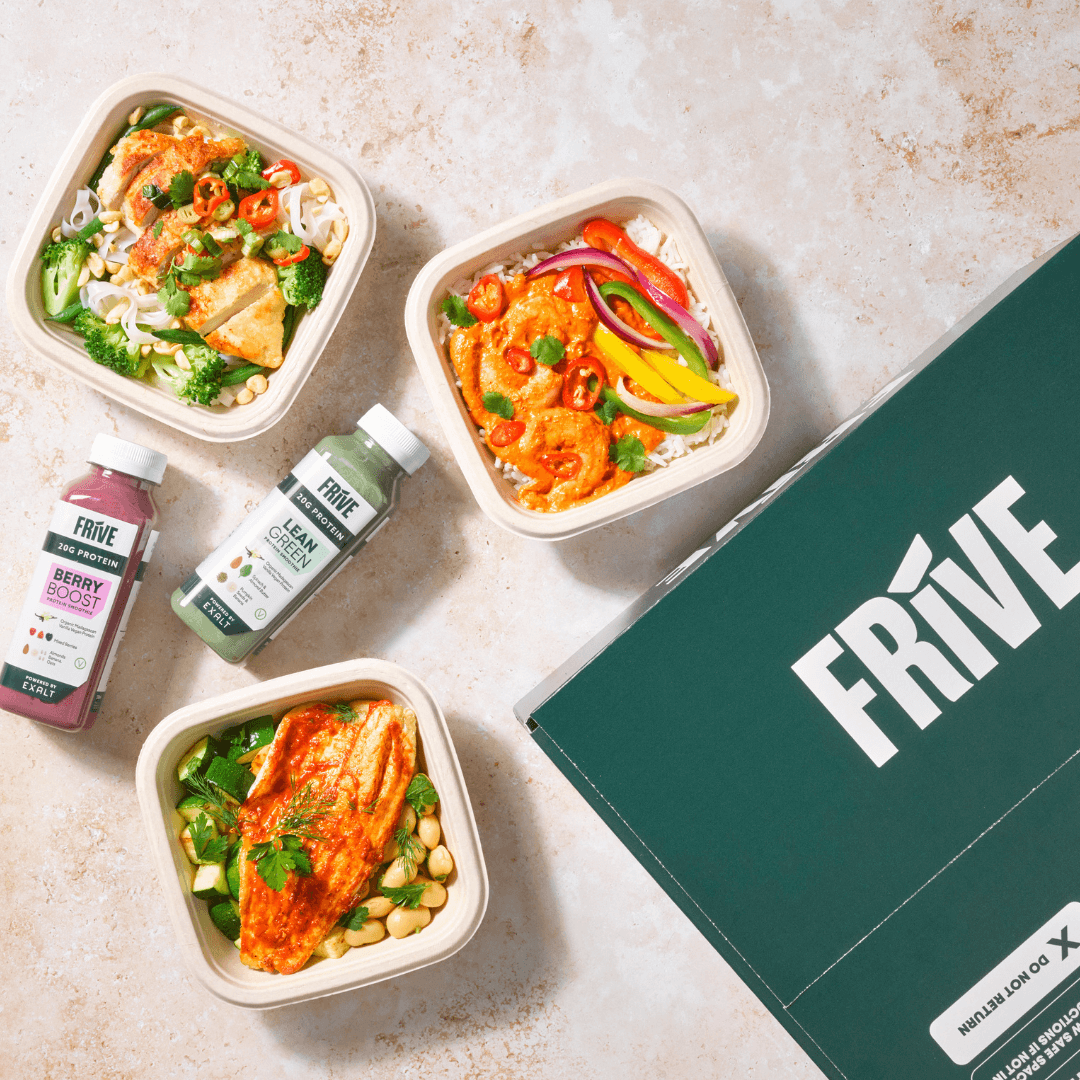
Power up and unlock muscle growth with Frive
Building muscle doesn't start in the gym—it begins in the kitchen, and we're here to tell you that when it comes to achieving your fitness goals, every bite counts.
Alongside regular resistance training, being in a calorie surplus and knowing your specific macro needs are muscle-building essentials when you want to bulk up, giving your body the energy it needs to repair and build bigger.
Luckily, Frive's high-protein meal prep makes nutrition effortless by doing the hard work for you. With options tailored for muscle gain, you can focus on your workouts while we handle the meal prep.
It’s no wonder that athletes like Niamh Emerson use Frive to power their training.
Fuel your gains and pack on the muscles with our protein plans today.
FAQs
Is 2500 calories enough to build muscle?
For many, 2,500 calories may provide a moderate calorie surplus needed for muscle gain. However, this all depends on your body weight, activity level and fitness, and 2,500 calories may not meet everyone's energy demands. Calculating your Total Daily Energy Expenditure (TDEE) is the best way to determine if 2,500 calories are right for you.
Will I gain muscle if I eat 3000 calories a day?
Eating 3,000 calories per day can help build muscle if it creates a calorie surplus above your TDEE. However, the source of those calories and macronutrient balance is critical to ensuring muscle gain rather than fat.
Can you build muscle on 1500 calories a day?
For most individuals, 1,500 calories is too low to support muscle growth, and it’s unlikely to provide the necessary energy and nutrients. Building muscle requires a calorie surplus and sufficient protein intake to repair and grow muscle tissue, and eating at a deficit could hinder progress and even lead to muscle loss.

